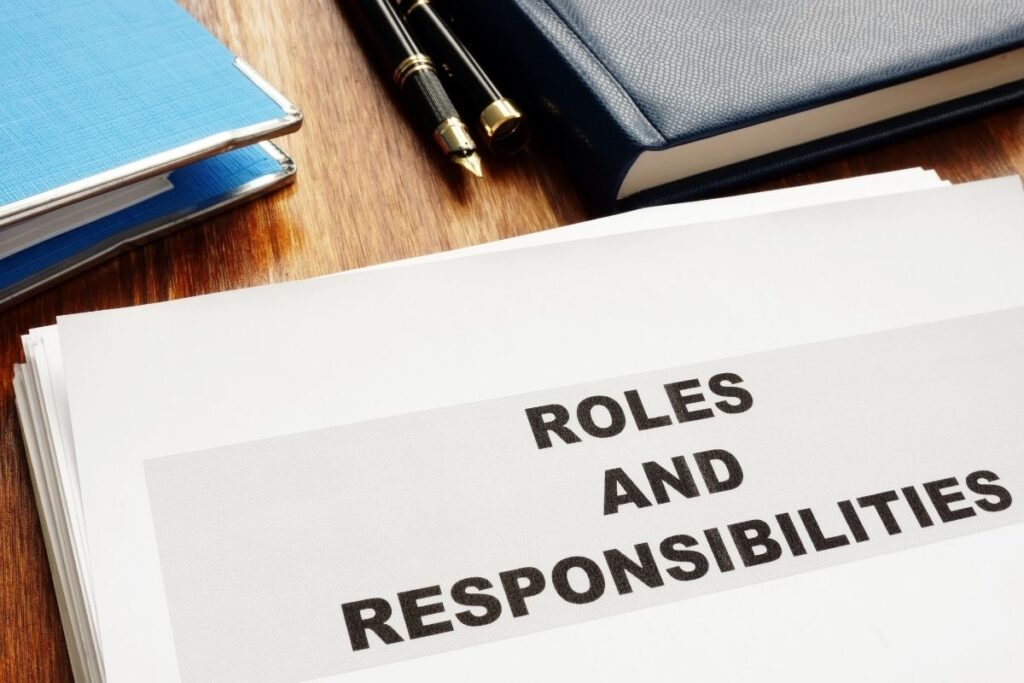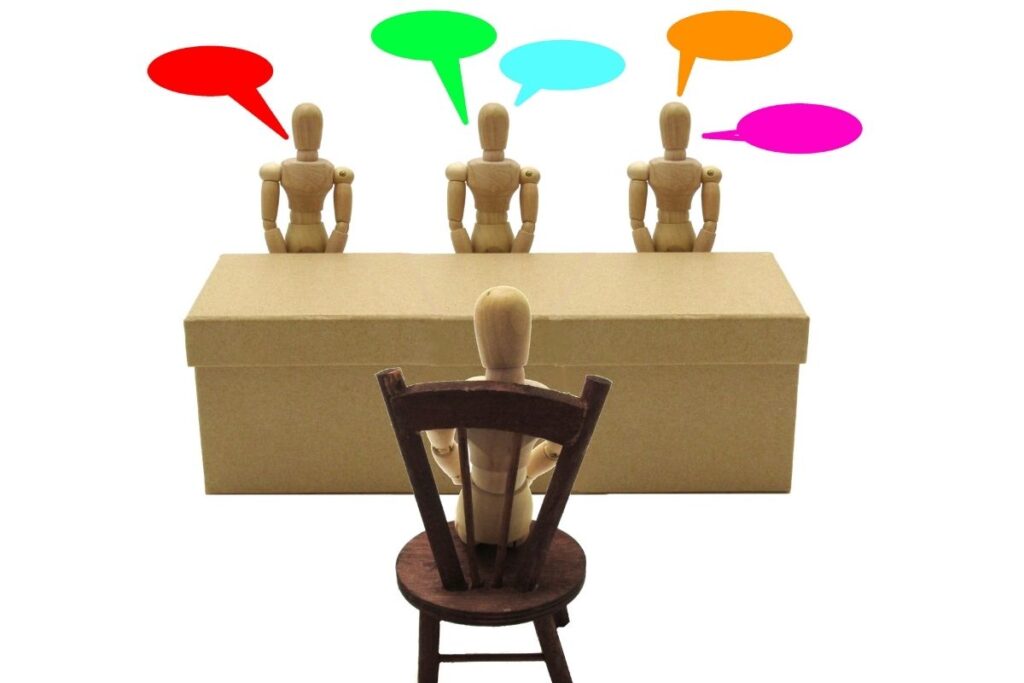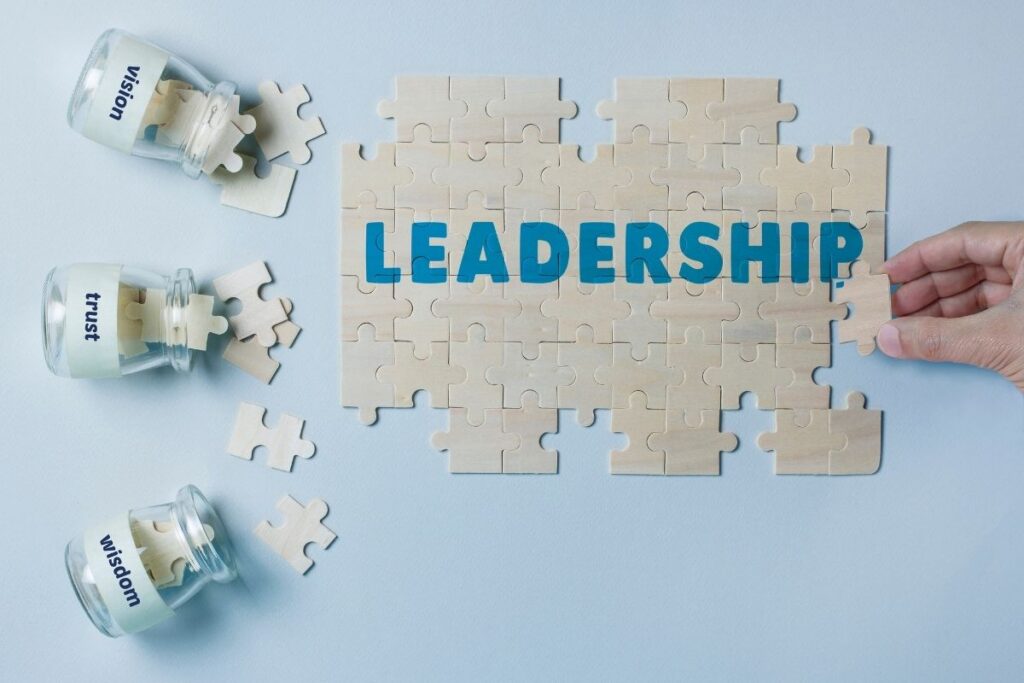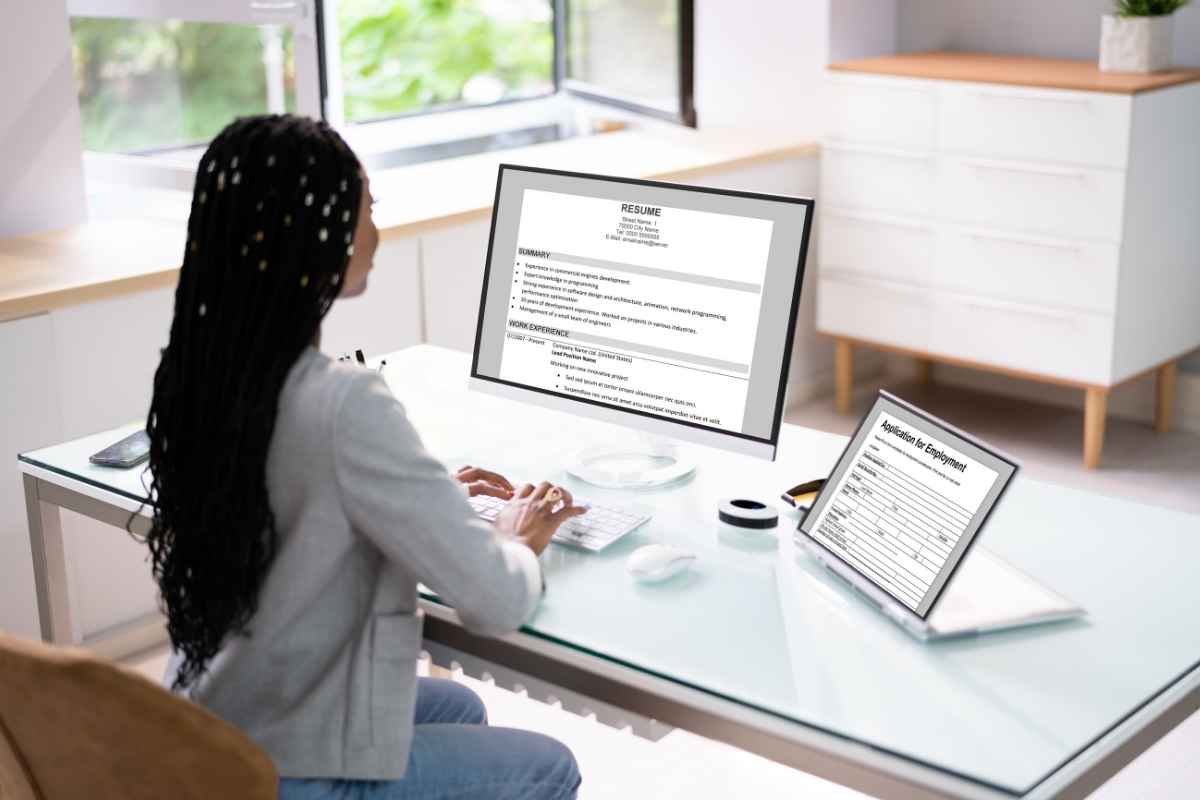
Top Action Verbs for Resume Success: Boost Your Job Application Today
September 27, 2025Essential Interview Preparation for Freshers: Key Tips and Strategies
Introduction to Interview Preparation
Getting Started with Interview Prep
Starting a first-time job interview can feel both exciting and scary. If you are a fresher, remember that thorough interview preparation can make all the difference. Research shows that confident candidates often perform better, and you can build that confidence by preparing well. As a beginner, learning about the hiring process, job description, and how to make a strong self-introduction for freshers is your first step. By understanding what recruiters look for and what the role entails, you tailor your study and practice effectively. You will feel more in control when you prepare thoroughly.
The Importance of Preparation
Preparation is key to acing a job interview and landing the role you want. For fresh graduates, it means reading the job listing carefully and picturing yourself in that position. Spend time reviewing the skills and qualifications mentioned in the description. Also, review your educational background and educational qualifications so you can confidently discuss them during the interview. Next, find out about the company’s products, mission, and team culture. This research not only boosts your confidence but also shows interviewers that you care about the company. Remember to keep track of all this information as you study.
Practising Common Questions
To prepare thoroughly, practice common questions and answers. Reviewing interview questions and answers can help you prepare for a variety of scenarios. Interview preparation for freshers is about practice and persistence. Start by answering simple questions like “Tell me about yourself” or “Why do you want this job?” in front of a mirror or with a friend. Practice out loud so your voice feels natural. You’ll notice where you hesitate or need more detail. Writing down key points can help structure your thoughts. Looking at a sample answer for a challenging situation can help you learn how to structure your response. You might even record yourself on your phone and play it back to catch any distracting habits or unclear phrasing. Each time you practice, you’ll gain more confidence.
Refreshing Your Technical Skills
In addition to interviewing skills, make sure your technical knowledge is fresh. If you’re preparing for a technical position, review the fundamentals of your field. Be sure to review data structures and other core computer science concepts, especially if you are preparing for technical interviews. For example, if you studied engineering, go over key theories or the software development lifecycle if relevant. Think of technical topics you learned in college or at a bootcamp. Practice solving a few problems related to your subject to sharpen your mind. This way, when technical questions come, you’ll have a foundation to rely on.
Planning Your Preparation Time
Finally, give yourself enough time to prepare. Last-minute cramming is stressful and less effective. Instead, break your study into stages. Maybe spend a few days on company research, another few on practising questions, and some time polishing your resume. By spacing out your preparation, you will feel less overwhelmed and more confident by the time interview day arrives. It’s natural to feel nervous, but remember: good preparation can turn nerves into excitement.
Building a Strong Resume and Cover Letter

Crafting an Impressive Resume
Your resume is often the first impression you make on potential employers. Building a strong resume and cover letter is a crucial part of interview preparation for freshers. Treat your resume like a showcase for your achievements and skills. Even if you have little formal work experience, you likely have projects, internships, volunteer work, or extracurricular activities to list. Write about those experiences in terms of what you accomplished.
Using Action Verbs on Your Resume
Use action verbs to make your resume stand out. Action verbs are powerful words that describe what you did. Instead of writing “worked on a project,” say “led a project,” or “designed a solution.” Verbs like developed, managed, organised, created, implemented, and achieved show initiative and responsibility. For example, you might write “Collaborated with classmates to develop a campus app,” or “Implemented a solution to improve efficiency in a team project.” This little change in wording can have a big impact.
Tailoring Your Resume to the Job
Tailor your resume to the job you’re applying for. Carefully read the job description and pick out keywords and skills. If the job listing mentions “teamwork,” “problem-solving,” or “Java programming,” make sure those keywords appear in your resume if they match your experience. Customising your resume shows employers that you put effort into aligning your qualifications with their needs.
Professional Formatting and Proofreading
Check the format and style of your resume. Use a clean layout with consistent fonts and bullet points. Make sure all your sections are easy to read. Also, proofread your resume multiple times to catch any spelling or grammar mistakes. You could ask a friend or mentor to review it as well. Errors on a resume can distract a hiring manager and take away from your accomplishments. With a polished resume and cover letter, you’ll feel more confident walking into the interview.
Understanding the Job Role and Responsibilities

Think about it for a second—how many people do you know who walk into job interviews completely blind, hoping to wing it with charm and a firm handshake? Maybe that person is you. Here’s the thing: before you even think about stepping foot in that interview room, you need to ask yourself a fundamental question—do you actually understand what you’re signing up for? The job description isn’t just some bureaucratic checklist they threw together; it’s your roadmap, your secret weapon, your chance to peek behind the curtain and see what they’re really after. But here’s the catch—most people treat it like fine print, skimming through it without truly grasping what’s at stake. Why do we do this to ourselves? When you study that job description closely, really dig into the day-to-day tasks, the skills they’re hunting for, the outcomes they’re expecting—that’s when the magic happens. You start to see the types of questions coming your way, and suddenly you’re not just another candidate stumbling through generic responses. You’re someone who’s done their homework, someone who gets it. And here’s what most people miss: this isn’t just about boosting your confidence, though that’s a nice side effect. It’s about proving to that interviewer that you’re not just desperate for any job—you’re genuinely interested in this role, this challenge, this opportunity to contribute something meaningful. Because at the end of the day, preparation isn’t just about having the right answers; it’s about showing up as someone who actually cares enough to understand what they’re walking into.
Analysing the Job Description
Think about it for a moment—when was the last time you truly dissected a job description, not just skimmed through it like most candidates do? Here’s the thing: to really maximise your preparation, you need to crack open that job posting like you’re solving a puzzle, breaking it down piece by piece. But here’s where most people get it wrong—they’re hunting for the obvious technical skills, those programming languages and software tools that jump off the page, while completely overlooking the hidden gems buried in the soft skills section. Why do we do this? Maybe because teamwork, communication, and adaptability feel too abstract, too intangible to grasp onto. But here’s the twist: those “soft” skills are often the hardest to fake and the most valued by hiring managers who’ve been burned by technically brilliant candidates who couldn’t play well with others. Have you ever stopped to really examine what the hiring manager is seeking beneath the surface—those problem-solving abilities that separate the reactive from the proactive, leadership skills that emerge not from titles but from influence, or that genuine passion for learning that can’t be manufactured in an interview prep session? And here’s where it gets interesting: while you’re busy checking boxes on technical requirements, are you taking the time to decode the company’s cultural DNA? Because here’s a sobering truth—you could be the most qualified candidate on paper, but if you’re tone-deaf to the organisational culture and values, you’re essentially trying to fit a square peg into a round hole. The real magic happens when you understand both sides of this equation—the technical expectations that get you in the door, and the cultural alignment that determines whether you’ll thrive or merely survive. But here’s the catch: this isn’t just about becoming what they want; it’s about determining whether this organisation actually aligns with your own professional trajectory, your own vision of where you want to be five years from now. When you truly grasp both the technical and cultural landscape, you’re not just tailoring your answers to show qualification—you’re crafting a narrative that demonstrates you’re not just another candidate fishing for any job, but someone who sees this specific role as a stepping stone toward something bigger, someone who won’t just fill a seat but will become an integral part of their long-term vision.
Identifying Key Skills and Requirements
Think about it for a moment—once you’ve really dissected that job description, what you’re actually doing is creating a roadmap to your own potential, isn’t it? This list of key skills and requirements. It’s not just a checklist; it’s your compass for navigating the unknown territory of that interview room. But here’s where it gets interesting: for each skill on that list, you need to dig deep—and I mean really deep—into your own story. What experiences have shaped you? Maybe it was that challenging coursework that pushed you beyond what you thought possible, or perhaps that internship where you discovered capabilities you never knew you had. Group projects that tested your patience, volunteer work that ignited something within you—these aren’t just bullet points on a resume, they’re the building blocks of who you’ve become. Now, here’s the thing about interview preparation: it’s not about memorising scripted answers, it’s about preparing to have an authentic conversation about your journey. When they ask about programming languages like Java or Python, can you paint a picture of that specific project where you wrestled with complex code until a breakthrough struck? Can you walk them through not just what you did, but how you thought, how you problem-solved, how you grew? Because here’s what most people miss—the magic happens when you stop simply listing your experiences and start connecting them to their needs, when you transform a sterile Q&A into a compelling narrative about capability and potential. That’s when you’ll find yourself answering with the kind of confidence and clarity that doesn’t just fill the silence, but creates genuine connection.
Matching Your Strengths to the Role
Think about it for a moment—what does it really mean to “stand out” in an interview? Are you just going through the motions, or are you actually revealing who you are? Here’s the thing: matching your strengths to the specific needs of the role isn’t just strategy, it’s storytelling at its finest. And the STAR method? That’s your secret weapon—Situation, Task, Action, Result—but here’s the twist most people miss: it’s not just about structure, it’s about creating a narrative that makes the interviewer lean in and think, “This is exactly what we need.” You see, when you provide clear and concise examples, you’re not just answering questions, you’re painting a picture of your potential. But here’s where it gets interesting: highlighting relevant skills like leadership skills, organisational skills, and problem-solving skills isn’t about listing achievements; it’s about sharing the real-life stories that shaped you. Think about this: if the job description mentions project management, why settle for a generic response when you could describe that pivotal moment when you led a group project, prioritised tasks under pressure, and guided your team through chaos to success? Because here’s what most candidates don’t realise—when you emphasise how your actions contributed to a positive outcome, you’re not just demonstrating your ability to manage projects and your commitment to high-quality work, you’re showing them a glimpse of their future with you on the team. And that’s the real magic, isn’t it? By aligning your strengths with the job requirements, you’re not just proving you’re ready to take on the challenges of the role—you’re making them believe that your success and your contribution to the company’s success are already intertwined.
Using Mock Interviews to Boost Confidence

Conducting Mock Interviews
Practice makes perfect, and that’s definitely true for interviews. One of the best ways to prepare is by doing mock interviews. A mock interview is like a trial run where you simulate the real interview conditions. You can do this with a friend, family member, or career advisor. They can ask you typical questions and give feedback on your answers. This practice helps you get comfortable with speaking about yourself and your skills.
Taking Mock Interviews Seriously
During a mock interview, dress up and treat it seriously. Use the same body language and tone you would in a real interview. It might feel a bit strange at first, but it will help you adapt to the pressure. Ask your mock interviewer to give honest feedback. For example, did you talk too fast? Did you answer clearly enough? Did you remember to smile and make eye contact (even if it’s just in a video call)? These details can make a real difference.
Gaining Confidence through Practice
Mock interviews can also be done online. Recording yourself on video and reviewing it is a powerful way to improve. Notice if you have any distracting habits, like fidgeting or saying “um” a lot. Work on fixing those small issues. Each time you practice, you’ll gain more confidence. By the actual interview day, this preparation will help you feel calmer and more articulate.
Understanding HR Interviews

What is an HR Interview?
An HR interview is a crucial step in the hiring process. As a fresher, this interview will focus on who you are as a person and how well you fit with the company. Human Resources (HR) wants to know about your personality, work ethic, and soft skills. Think of the HR interview as a conversation to see if you belong in the team’s culture.
Types of HR Interview Questions
During an HR interview, you’ll often face questions about your background and how you handle situations. The interviewer might ask about your experiences in college, any part-time jobs, or internships you had. They will also pay attention to your communication style. For example, they might ask, “How do you handle stress when there’s a tight deadline?” or “Tell me about a time you solved a problem in a team.” These behavioural questions want you to give specific examples of your skills in action.
Key Qualities HR Looks For
Remember to highlight the qualities that employers value. Demonstrated leadership skills are important even for freshers. Showing that you are a team player who collaborates effectively and is highly motivated to contribute to the organisation can set you apart. You might not have managed a team at work, but you can talk about leading a group project in class, coordinating a volunteer event, or training a junior colleague during an internship. Communication skills are also critical. Show that you can explain your ideas clearly and listen well. Problem-solving abilities, adaptability, and a positive attitude will also impress an HR interviewer.
Showing Your Interest in the Company
An HR interview is also your chance to learn about the company. Use this opportunity to show that you did your homework. For instance, mention how the company’s mission or products excite you. Ask thoughtful questions about the team culture or what growth opportunities look like. Demonstrating genuine interest helps you stand out. You’re not just answering questions; you’re also letting the interviewer see that you would be a motivated team member.
Overcoming Interview Anxiety
It’s normal to feel nervous during an HR interview, but being prepared can turn those nerves into positive energy. Practice answering common HR interview questions with friends, and get comfortable talking about yourself. Focus on being friendly and professional at the same time. This step of interview preparation for freshers can make the whole process more enjoyable and less scary.
Preparing for Common Interview Questions

Common Questions to Expect
Interviews often start with some standard questions that almost every candidate hears. As a fresher, being ready for these common interview questions will boost your confidence. Some questions seem simple, but are very telling about who you are.
Your Elevator Pitch (“Tell Me About Yourself”)
For instance, “Tell me about yourself” is almost guaranteed. This is your elevator pitch. Don’t just walk through your resume again; instead, craft a short story about what brought you here. Start with where you studied and something you’re proud of, and connect it to why you’re now interviewing for this job. Keep it brief—maybe a minute long—and highlight your strengths and interests related to the role.
Why You Want This Job
Another common question is, “Why do you want this job?” The interviewer wants to know if you understand the position and if you’re really interested. Mention specific things about the job and company that appeal to you. For example, “I want this job because I’m passionate about environmental science, and your company’s work on sustainable energy is inspiring.” This shows you’re motivated by their mission and value alignment.
Strengths and Weaknesses
Questions about strengths and weaknesses are very popular too. When asked about your strengths, choose skills that fit the job (like teamwork, communication, or a certain software skill) and give an example of each in action. Reference your previous roles to show how your contributions led to team success and helped you develop these strengths. If they ask about weaknesses, be honest but smart: talk about something you’re improving on, and then explain the steps you’re taking to get better. For example, “I used to struggle with public speaking, so I joined a debate club to gain confidence.” This shows self-awareness and growth.
Practising with Sample Answers
It’s a great idea to look at sample questions and answers as part of your preparation. Many career websites share typical responses. Use these to get an idea of how to structure your answer, but don’t memorise scripts. Understand the question’s intent and adapt answers to your own experience. Keep it conversational and genuine. After reviewing samples, practice with a friend or in front of a mirror. Over time, this practice will make your answers more confident and natural.
Mastering the STAR Method
One effective technique for answering interview questions is the STAR method. STAR stands for Situation, Task, Action, and Result. It’s a way to structure your answers. For example, you might say: “In my final year project (Situation), our team had a tight deadline. My task was to coordinate our work. I created a schedule and held daily check-ins (Action). As a result, we finished the project two days early with high marks (Result).” This structure helps you answer clearly and completely, showing you have real experiences to back up your answers. It’s especially useful for behavioural questions, particularly when you need to describe how you overcome challenges in difficult situations.
Demonstrating Leadership and Communication Skills

Why Leadership Skills Matter
Even as a new graduate, you can show leadership and communication strengths. Employers love candidates who step up as team players and future leaders. Think of any situation where you took charge or helped guide others, and be ready to talk about it.
Why Communication Skills Matter
Communication skills go hand-in-hand with leadership. In your stories, highlight how you communicated. Did you write emails to keep everyone updated? Did you present a report to a professor or team? Mention these. Remember, effective communication means listening as well as talking. You might say, “I always made sure to listen to my teammates’ ideas and concerns before making decisions.” This shows you value others’ opinions.
Highlighting Leadership in Team Settings
When describing leadership, focus on teamwork scenarios. For example, “In my final year capstone project, I took the lead in dividing tasks among team members and setting deadlines. We met weekly to discuss progress. I also encouraged quieter members to share ideas, which helped our project excel.” This kind of answer shows initiative and inclusiveness. Always connect your stories back to the role you want. If you’re interviewing for a software role, you might add, “Leading the project team taught me project management skills that I believe will help me work on software teams here.”
Showcasing Your Communication Skills
Effective communication can be shown with specific examples. If you gave a presentation in school or at an internship, mention it. “I gave a presentation to my class about my internship findings. I prepared slides and practised my speech to keep everyone engaged.” This shows confidence and clarity. Listening is also a big part of communication. You might say, “I always ask follow-up questions and confirm what others say to ensure I understand tasks correctly.” These habits show you are an attentive communicator. In a technical context, explain your approach. For example: “When answering a coding question, I would talk through my plan step by step so the interviewer knows my reasoning.” This shows you will communicate well on the job.
Aligning Career Goals with the Role
Why Career Goals Matter
Having clear career goals helps interviewers see you as someone who plans ahead. When you answer questions about the future, show that you have thought about how this job fits into your broader aspirations.
Short-Term vs Long-Term Goals
First, define your short-term goal in relation to the position. You might say, “In the next couple of years, I want to grow into a role where I can manage projects. Starting in this position will give me the foundation to understand the company’s processes and client needs.” Next, mention a long-term career vision. For example, “In five years, I see myself taking on more responsibility as a team lead or subject matter expert in this field.” Make it relevant to the industry or field. Mention roles or certifications that fit your path.
Setting Clear Career Goals
When setting career goals, be honest but forward-thinking. For instance, if you want to become an expert in a technical skill, mention it. You could say, “My goal is to become a skilled software engineer, and this job will help me sharpen my coding abilities.” If you see leadership in your future, you might say, “I aspire to lead my own team one day, so I want to start by contributing as an effective team member and learning from experienced managers here.” Align your goals with what the company does. For example, if the company focuses on sustainability and you care about the environment, say, “I want to build a career in sustainable technology, and I admire that your company is a pioneer in that area.” This makes your goals seem a natural fit.
Discussing Your Experience and Future Prospects
Reflecting on Past Roles
As a fresher, your interview might include questions about past roles or projects and what you want next. Even if your “current job” is not a full-time position, you may have relevant experiences to discuss. When asked about your last job or project, focus on what you did and learned. For example, “My last internship as a junior developer taught me how to work in an agile team. I handled basic coding tasks and learned how to communicate with senior developers.” If you have never had an official job, you can talk about a school project or a part-time role that taught you valuable skills. The key is to show what you learned and how it prepares you for this role.
Looking Ahead to New Opportunities
Discussing what you’re looking for in your next role is also important. Explain why this position fits you. You could say, “I’m looking for a role where I can apply my programming skills and continue learning new technologies. I see that this position involves working on mobile apps, which is exactly what I’ve been studying and can’t wait to do professionally.” Be enthusiastic about the company culture and environment. If you like teamwork, say you appreciate that the company values collaboration. If they have mentorship programs or training, mention that those appeal to you as a learner. For instance, you might ask, “What qualities do your most successful employees have in common?” This shows you care about fitting in and growing there.
Researching Company Culture
Learning About Company Culture
Knowing the company culture can give you an edge in an interview. Every company has its own vibe, values, and mission. If you align yourself with those, you’ll make a strong impression. Start by looking at the company’s website, social media, and news articles to learn about its culture and mission statement. For example, if the company’s mission is to help customers succeed, think about how you share that value. Perhaps you have a story about serving clients or helping others that shows you prioritise customer needs.
Understanding Company Values and Mission
Talk about the company’s products or services too. If they make technology you love, mention that. For example, if they create educational software and you care about learning, say that you are excited to be part of making people’s lives better through education. Showing you’ve done this research proves you’re sincerely interested, not just sending resumes blindly. During the interview, use the information to your advantage. For example, you might say, “I read that your company encourages continuous learning through workshops, and that’s important to me because I always aim to improve my skills.” This shows you fit their culture of growth.
Demonstrating Cultural Fit
Show that you will fit in by using the language they use. For instance, if the company calls teams “squads,” you could say, “I’m excited about the idea of working in an agile squad.” Discuss your preferred work style in a way that matches their culture. If they value collaboration, say you enjoy group work. If they emphasise independence, mention how you thrive on self-directed tasks. You might say, “I understand this industry can move quickly. During a group project in college, I adapted when things changed by reorganising our plan to stay on track. I’m confident I can adapt similarly in a professional setting.” Ultimately, showing that you understand and respect the company culture makes interviewers envision you as part of their team. It’s the finishing touch that can land you the job.
Asking the Right Questions
At the end of the interview, you usually get to ask your own questions. Prepare thoughtful questions about the culture. For instance, you might ask, “What qualities do your most successful employees have in common?” or “How does the team celebrate successes?” Asking these questions shows you care about being part of the right culture and helps you learn if the environment is a good fit for you.
Handling Stress and Pressure
Sharing Stress-Management Examples
Interviews can be stressful, but how you handle stress is something interviewers watch closely. You can impress them by showing that you remain calm and effective under pressure. Start by sharing a quick example of a challenge you managed successfully. For example, “During exam week, I had three major deadlines. It was stressful, but I made a schedule and stuck to it. I prioritised tasks by deadlines and worked in focused time blocks. This plan helped me complete all the work on time and with good results.” This anecdote shows proactive stress management and good organisation.
Having a Problem-Solving Mindset
When talking about stress, emphasise your problem-solving mindset. You might say, “When tasks pile up, I break them into smaller steps to make progress steadily. I also talk to peers or mentors to get advice if I feel stuck. This approach helps me not to feel overwhelmed.” It shows you have strategies to cope, rather than feeling defeated by stress.
Staying Calm Under Pressure
You should also note that you maintain the quality of your work, even when busy. Perhaps say, “When I had to write multiple assignments at the same time, I created checklists and reviewed each one carefully before submitting. This way, none of my work suffered due to the high workload.” It shows dedication to excellence even in tough times.
Keeping a Positive Attitude
Maintaining a positive outlook is important. For example, “Even if I feel pressure, I try to stay positive by focusing on what I can do in the moment. I remind myself that stress often means I care about the outcome. That positive mindset has helped me do well on big projects and deadlines.” This indicates leadership and emotional intelligence. Each of these examples tells a story of how you handle pressure, which will reassure the interviewer of your ability to perform under stress.
Final Preparation Tips Before the Interview
Think about it for a moment—as your interview day creeps closer, are you just going through the motions, or are you actually preparing to perform? Here’s the thing: most people think they’re ready because they’ve skimmed the company website and rehearsed a few canned responses, but what if that’s exactly the trap that keeps you from standing out? Why do we settle for surface-level preparation when the interview is essentially a high-stakes performance where every other candidate is reading from the same script? You see, when you dive deep into the company’s recent press releases, their latest product launches, their victories and struggles—you’re not just gathering information, you’re building the foundation for authentic connection. But here’s what most people miss: practising behavioural questions isn’t about memorising perfect answers; it’s about discovering how your story intersects with their story, how your experiences don’t just align with their values but actually amplify them. And those thoughtful questions you prepared to ask the interviewer? They’re not just conversation starters—they’re your chance to flip the dynamic, to transform from someone begging for a job into someone evaluating a partnership. Because here’s the uncomfortable truth: confidence isn’t something you fake until you make it, it’s something you earn through preparation so thorough that uncertainty becomes excitement, and the interview stops feeling like an interrogation and starts feeling like a conversation between equals. What if the real question isn’t whether you’re qualified for the job, but whether the job is worthy of what you bring to the table?
Double-Checking Your Documents
Think about it for a moment—when was the last time you really looked at your documents before an interview? And I mean really looked, not just that quick glance that tells you “yeah, it’s all there.” Here’s the thing: your resume, cover letter, and reference list aren’t just pieces of paper—they’re your first impression walking through that door before you even say a word. Are they telling the story you want them to tell? Or are they whispering doubts about your attention to detail? Maybe you’re thinking, “It’s just paperwork,” but here’s the twist—what if those documents are actually the foundation that either builds your credibility or quietly undermines it? And if the interview calls for additional materials—that portfolio gathering dust on your shelf, those certificates you earned but forgot about, those examples of your work that showcase who you really are—when will you gather them, if not now? Because here’s the catch: scrambling at the last minute isn’t just stressful, it’s a silent thief that steals your confidence right when you need it most. You see, having everything organised isn’t really about the documents themselves—it’s about what that preparation signals. It whispers to the interviewer that you don’t just want this opportunity, you respect it. It shows that you understand something most candidates miss: that professionalism isn’t just how you dress or how you speak, it’s how you think about the details that others overlook. And here’s what’s fascinating—this kind of preparation doesn’t just set you apart from other candidates, it transforms how you walk into that room. When you know everything is in order, when every document tells your story with precision, you’re not just prepared for the interview—you’re prepared to own it.
After the Interview: Follow-Up and Reflection
Sending a Thank-You Note
Once the interview is over, your work isn’t quite done. The way you follow up can leave a strong final impression. After you leave the interview or end a video call, send a thank-you note or email within 24 hours. In it, thank the interviewer for their time, mention one or two points from the discussion, and reiterate your interest in the role. For example, “I enjoyed learning about your upcoming project on renewable energy. I am even more eager to contribute my skills to such initiatives.” This simple gesture can go a long way in showing professionalism and enthusiasm.
Reflecting on Your Interview
After sending the thank-you note, take some time to reflect on the interview itself. Think about which questions you answered well and which ones you could improve. Did you feel confident when describing a particular experience? Did a question catch you off guard? Write down these observations. This self-reflection is a valuable part of interview preparation that many overlook. It helps you learn and be better in future interviews.
Learning from the Experience
If possible, ask a trusted mentor or career counsellor about your performance. They can help you identify areas to improve. Keep practising based on what you learned. For instance, if you stumbled on a technical question, review that topic. If you got tongue-tied describing a project, practice that story again. Even if you get an offer quickly, continue to prepare as you start the job. The interview process itself is a great practice for the next steps in your career. Every interview experience makes you a more polished candidate. However, if you don’t get the job, stay positive. Employers sometimes have many qualified candidates. Use any feedback given (or ask politely if they have advice for improvement), and apply that feedback moving forward. Remember: each interview is a learning opportunity, and staying persistent and enthusiastic is crucial.
Continuing to Improve and Stay Positive
Building New Skills
The journey doesn’t end when the interview does. Keep your skills sharp and learn new ones. If, during the process, you realise the company uses a tool you’re unfamiliar with, start learning it online. Take free courses or tutorials to fill any gaps. Not only does this prepare you for next time, but it also shows your proactive learning mindset. Stay engaged in your field by reading industry news, joining webinars, or attending workshops. These activities can give you fresh examples to talk about in future interviews and show that your passion goes beyond just getting a job – you’re genuinely interested in the field.
Networking and Professional Growth
Networking can also help. Connect with professionals in the industry or alumni from your school who work in similar roles. They can give insights or tips, and sometimes even referrals. A simple conversation over coffee with a young professional can boost your morale and guide you. Talking to others in the field can inspire you with new ideas and help you stay motivated.
Keeping Your Motivation High
Keep your attitude positive. It’s normal to feel discouraged if you face rejection, but remember that many successful people faced multiple rejections early in their careers. Tell yourself that each “no” brings you closer to a “yes.” Maintain a list of your accomplishments and read it when you need a confidence boost. Consider every interview experience a step forward. You’ve practised answering tough questions and thinking on your feet. Use that experience as fuel – you will be stronger in the next round.
Celebrating Progress
Finally, celebrate small wins. Did you manage to answer a tricky question well? Did you finally perfect your resume with action verbs? Did you expand your network by talking to a professional? Give yourself credit for these improvements. They are progressing on your journey. Be patient with yourself. You are at the beginning of your career. Give yourself credit for the efforts you are making to prepare, learn, and grow. With each step, you are getting closer to landing the job that’s right for you.
Conclusion
Embarking on your first job search as a fresher can be daunting, but with smart interview preparation, you will shine. Start early by building a clear resume filled with strong action verbs and by practising common questions. Learn about the company and align your goals with theirs. Show your best communication and leadership skills in the interview, and stay calm under any pressure. After the interview, follow up and keep improving yourself.
Every bit of preparation adds to your confidence. Remember, you have a unique story and skill set to offer. Believe in yourself, stay positive, and keep practising. The right opportunity is out there, and with dedication and the right strategies, you’ll be ready to grab it.




